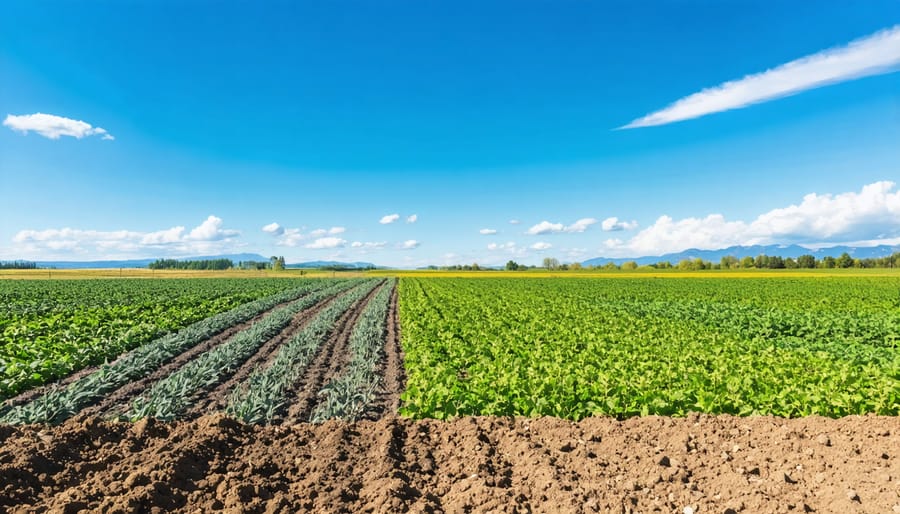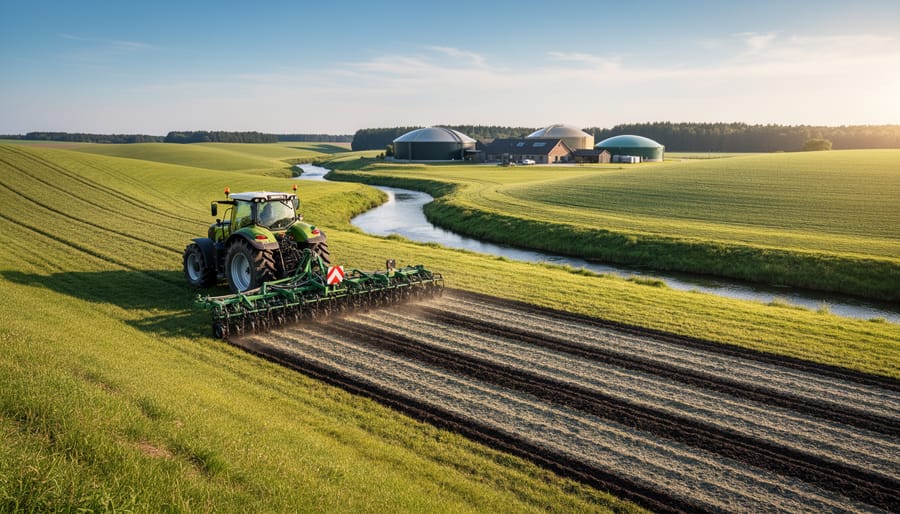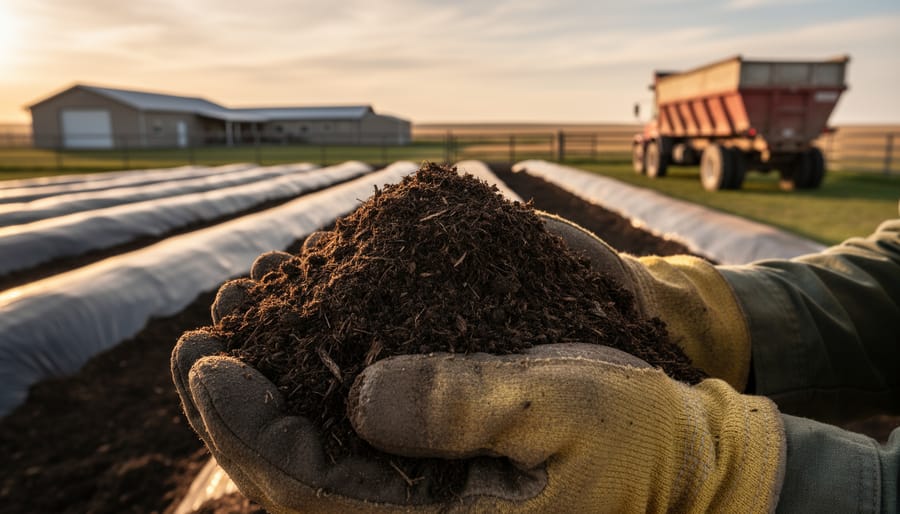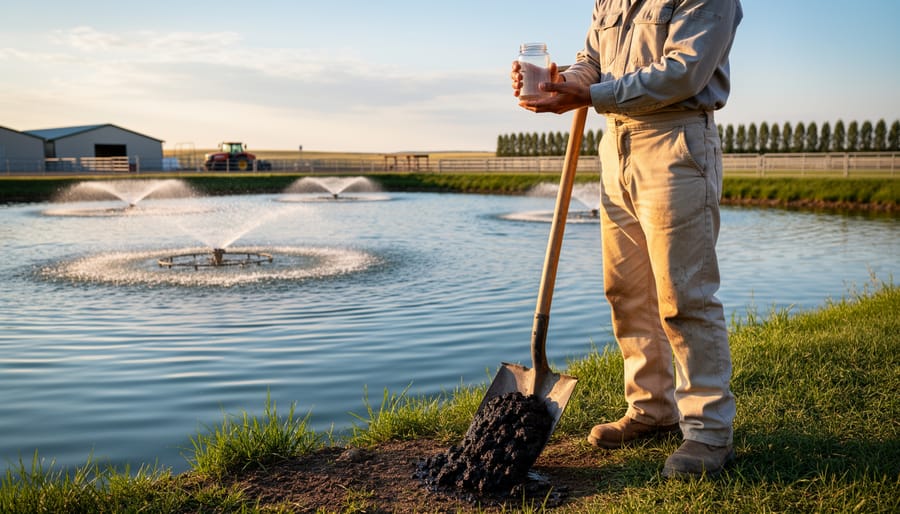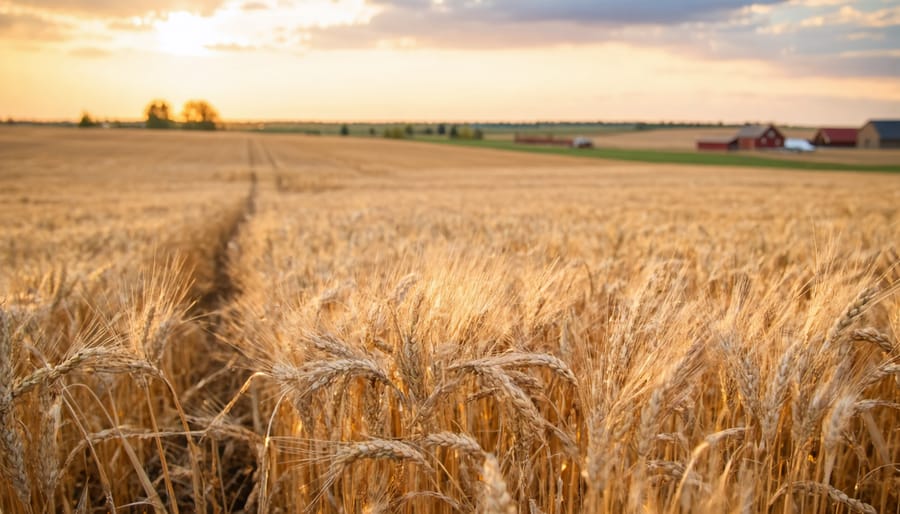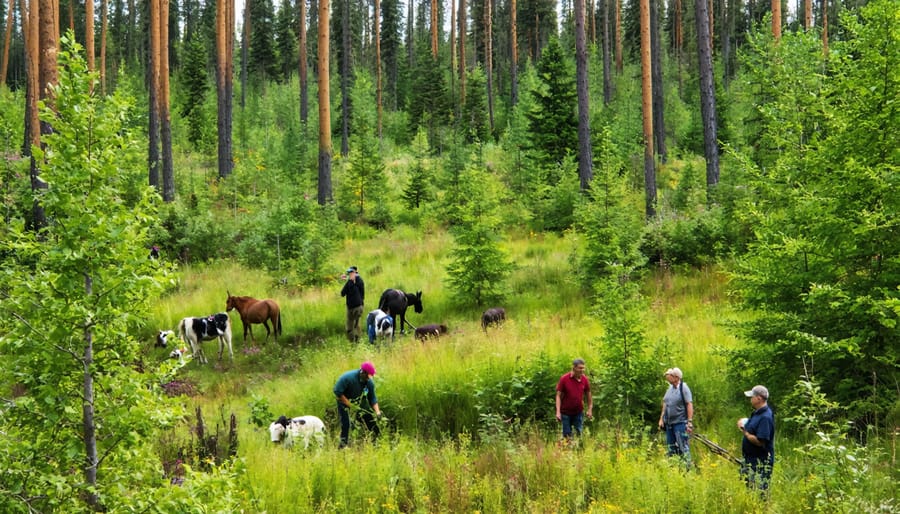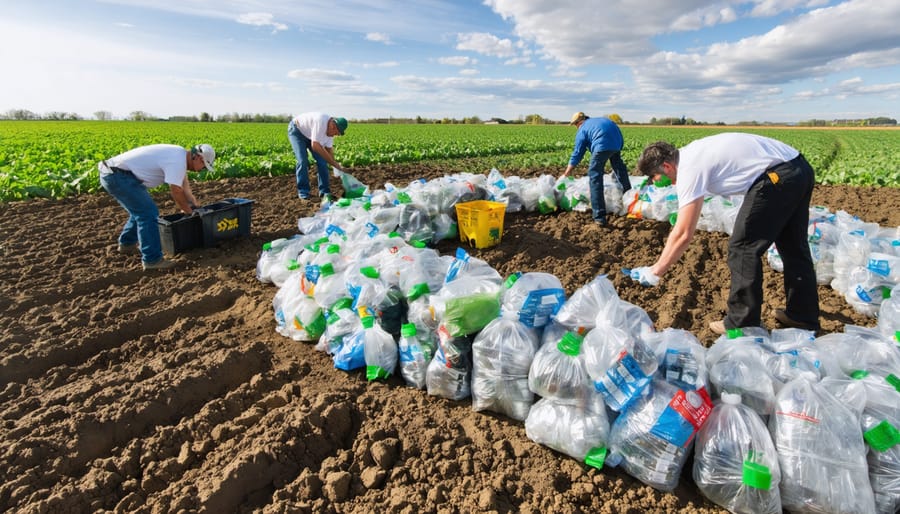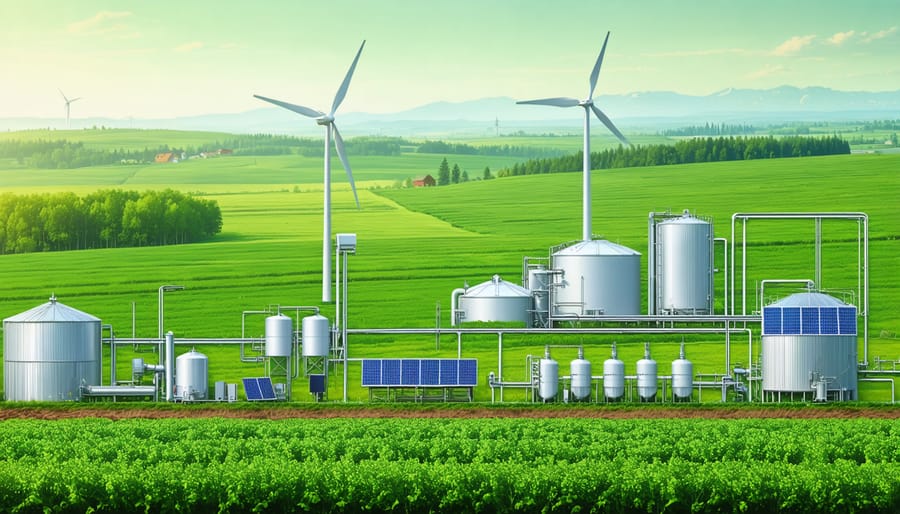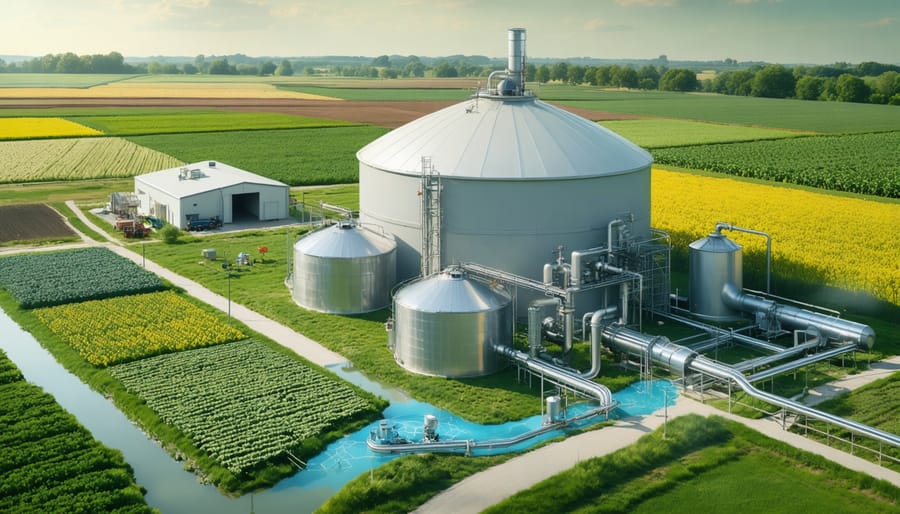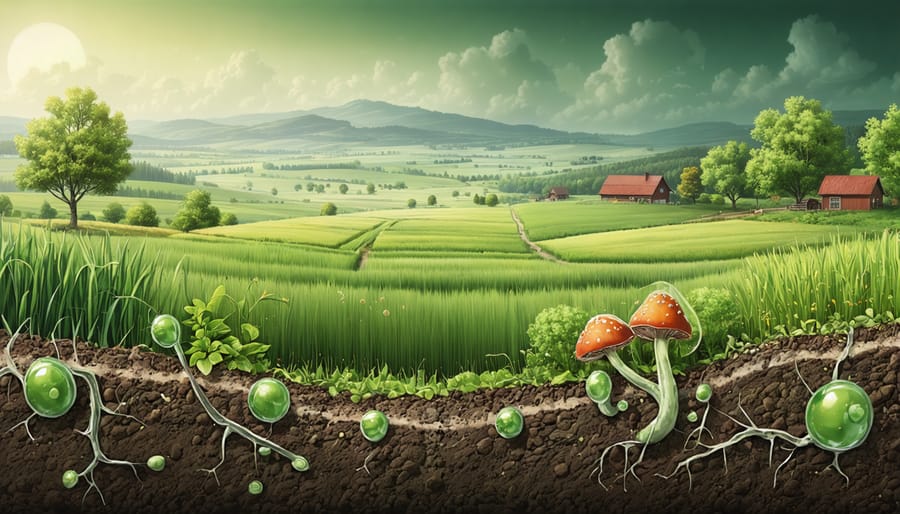Embrace sustainable agriculture and combat climate change with environmentally friendly fertilizers. Harness the power of compost, harnessing valuable nutrients from organic waste to nourish your crops. Unleash the potential of cover crops like clover and alfalfa, which naturally fix nitrogen in the soil. Boost your soil’s health with organic amendments such as bone meal, blood meal, and fish emulsion – time-tested solutions trusted by generations of farmers. Join the green revolution and discover how earth-friendly fertilizers can transform your farm into a beacon of sustainability and abundance.
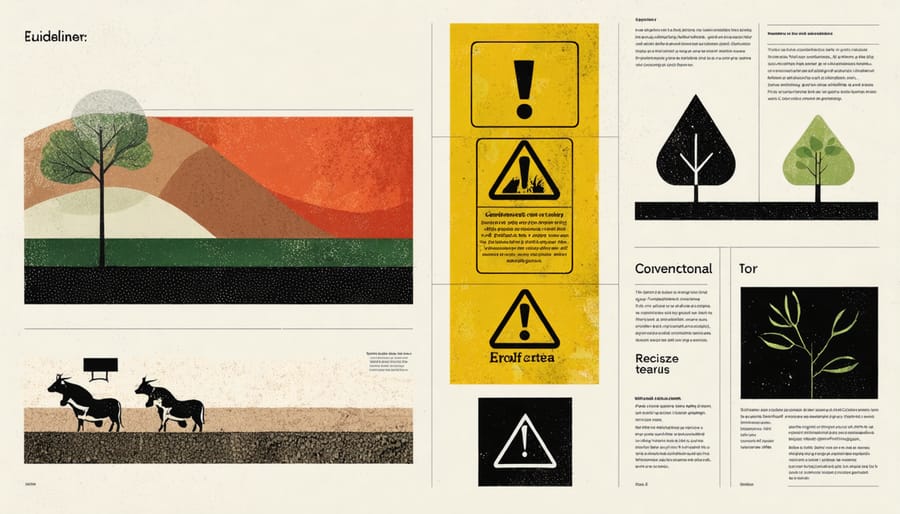
The Perils of Conventional Fertilizers
Soil Degradation
Chemical fertilizers can have detrimental effects on soil health over time. These synthetic substances often disrupt the delicate balance of microorganisms in the soil, reducing biodiversity and weakening the soil’s structure. As a result, the soil becomes more prone to erosion, compaction, and decreased water retention capacity. Moreover, the overuse of chemical fertilizers can lead to the accumulation of salts and heavy metals, further degrading soil quality and potentially harming crops. By adopting environmentally friendly fertilizers, Alberta farmers can help preserve the long-term health and productivity of their land for future generations.
Water Contamination
Conventional fertilizers, while effective at promoting plant growth, can have detrimental effects on the environment when not used responsibly. One of the most significant issues is fertilizer runoff, which occurs when excess nutrients from fertilizers are carried away by rainwater or irrigation and end up in nearby water sources. This water pollution can lead to algal blooms, depleted oxygen levels, and harm to aquatic life. Alberta’s rivers and lakes are particularly vulnerable due to the province’s agricultural landscape. As stewards of the land, it’s crucial for farmers to be mindful of their fertilizer use and take steps to minimize runoff.
Carbon Footprint
The production of synthetic fertilizers is an energy-intensive process that contributes significantly to greenhouse gas emissions. According to a study by the University of Alberta, the manufacturing of nitrogen fertilizers alone accounts for about 1.2% of global energy consumption and generates substantial amounts of carbon dioxide. Additionally, the application of these fertilizers leads to the release of nitrous oxide, a potent greenhouse gas with nearly 300 times the warming potential of CO2. By transitioning to more sustainable and environmentally friendly fertilizer options, Alberta farmers can play a crucial role in reducing the carbon footprint associated with agricultural practices while still maintaining soil health and crop productivity.
Top 7 Eco-Friendly Fertilizer Options
1. Compost
Composting is a fantastic way to create nutrient-rich, environmentally friendly fertilizer right on your farm. By recycling organic waste like crop residues, animal manure, and food scraps, you can reduce your reliance on synthetic fertilizers while improving soil health. Compost adds essential nutrients, increases water retention, and supports beneficial microorganisms in the soil. To start composting, create a pile or bin with alternating layers of brown materials (like straw or leaves) and green materials (such as fresh plant clippings or kitchen waste). Keep the pile moist and well-aerated, turning it regularly to speed up decomposition. With patience and proper management, you’ll have a valuable, sustainable fertilizer to nourish your crops and improve your farm’s ecosystem.
2. Animal Manure
Animal manure, rich in nutrients like nitrogen and phosphorus, is an eco-friendly fertilizer option when used properly. Composting the manure before application reduces odors and potential pathogen risks. Conduct soil tests to determine the appropriate application rate, as excessive amounts can lead to nutrient runoff and water pollution. Incorporate the composted manure into the soil to minimize nutrient loss and optimize plant uptake. Consult local agricultural experts or extension services for guidance on best practices specific to your area and crop needs. By responsibly utilizing this valuable resource, Alberta farmers can enhance soil health, reduce reliance on synthetic fertilizers, and promote sustainable agriculture in their communities.
3. Cover Crops
Cover crops, such as legumes and grasses, play a vital role in promoting soil health and reducing the need for synthetic fertilizers. By fixing atmospheric nitrogen and converting it into a form usable by plants, cover crops naturally enhance soil fertility. When incorporated into the soil, they also improve soil structure, increase organic matter, and prevent erosion. Alberta farmers can benefit from integrating cover crops into their crop rotations, as they not only provide valuable nutrients but also support beneficial microorganisms and enhance overall soil quality. Consult with local agricultural experts to determine the most suitable cover crop species for your specific farming conditions.
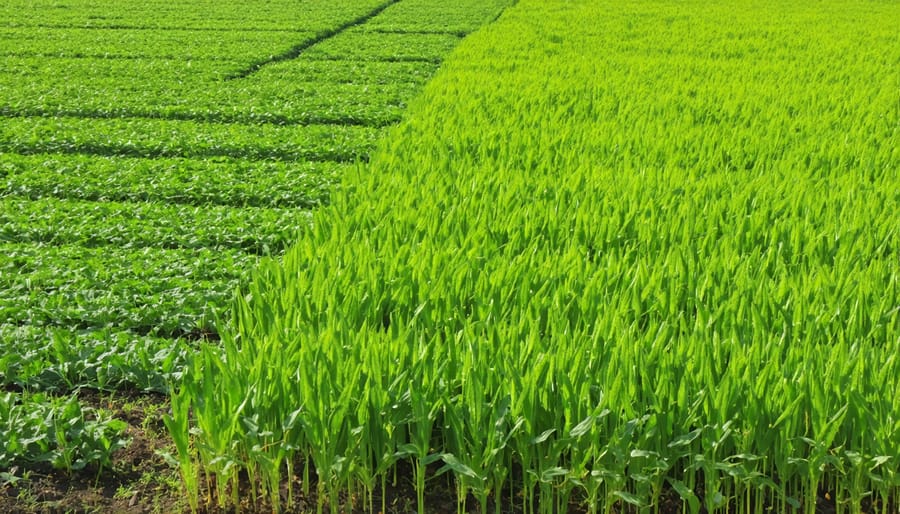
4. Bone Meal
Bone meal, derived from steamed and ground animal bones, is a slow-release organic fertilizer rich in phosphorus and calcium. Its gradual nutrient release supports strong root development and overall plant health without the risk of burning plants. Bone meal is particularly beneficial for root crops, bulbs, and perennials. As a by-product of the meat industry, it promotes a circular economy by repurposing waste materials. Incorporate bone meal into your soil before planting for long-lasting, eco-friendly nutrition.
5. Liquid Seaweed
Liquid seaweed extract is a potent source of micronutrients, trace elements, and natural growth stimulants. Rich in vitamins, amino acids, and minerals like potassium and magnesium, seaweed extract enhances plant health and resilience. The growth hormones present, such as auxins and cytokinins, promote strong root development and lush foliage. Farmers in Alberta have reported improved crop quality and yield after incorporating liquid seaweed into their fertilization regimes. This eco-friendly option is easy to apply through irrigation systems or foliar sprays.
6. Biochar
Biochar, a charcoal-like substance created through the pyrolysis of organic material, offers a sustainable solution for soil amendment. When incorporated into soil, biochar improves nutrient retention, water holding capacity, and microbial activity, leading to healthier plant growth. Moreover, biochar acts as a stable carbon sink, sequestering atmospheric carbon dioxide in the soil for centuries. This dual benefit makes biochar a promising tool for enhancing soil fertility while combating climate change in Alberta’s agricultural sector.
7. Vermicompost
Vermicompost, produced by worms breaking down organic matter, is a nutrient-dense, eco-friendly fertilizer. Worm castings contain beneficial microbes and readily available nutrients, promoting healthy plant growth and soil structure. This natural fertilizer slowly releases nutrients, reducing the risk of nutrient leaching and runoff. Vermicompost also improves soil water retention and aeration, making it an excellent choice for Alberta farmers looking to enhance soil quality and plant health while minimizing environmental impact.
Implementing Sustainable Fertilization Strategies
Soil Testing
Regular soil testing is crucial for determining the specific nutrient needs of your land and crops. By analyzing key indicators like pH, organic matter, and mineral content, you can make informed decisions about fertilizer application. This helps prevent over-fertilization, which can lead to nutrient runoff and environmental damage. Soil testing also allows you to target deficiencies and optimize plant health without wasting resources. As an Alberta farmer, you can access soil testing services through local agricultural organizations or private labs. Aim to test your soil every 1-3 years, depending on your crop rotation and management practices. By staying attuned to your soil’s needs, you’ll be better equipped to choose environmentally friendly fertilizers that support both your farm’s productivity and the health of our shared ecosystem.
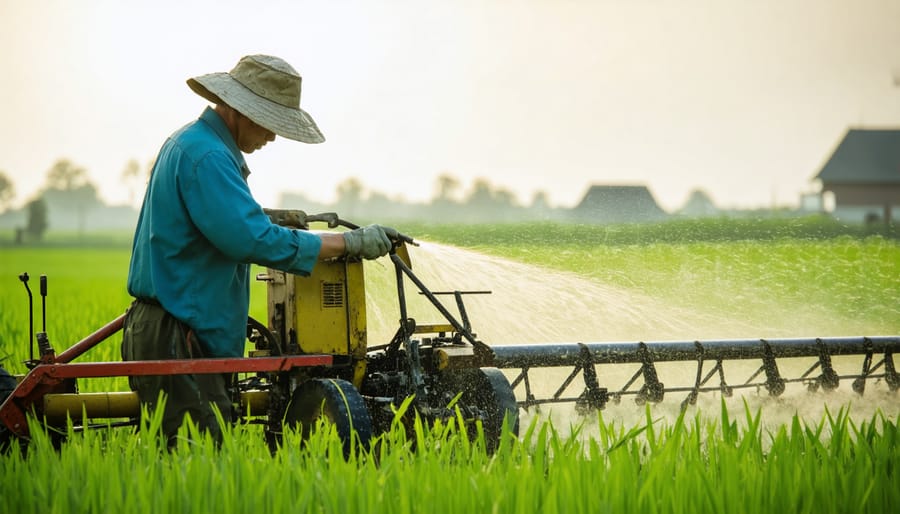
Precision Application
Precision application techniques can significantly reduce fertilizer waste and environmental impact. By using GPS-guided equipment and variable rate technology, farmers can apply fertilizers only where needed, in the exact amounts required. This targeted approach not only minimizes runoff and leaching but also saves money on input costs. Soil testing and crop mapping provide valuable data to inform these precision decisions. Alberta companies like [example company] offer precision agriculture services to help farmers implement these strategies. Adopting precision application methods is a win-win, promoting both environmental stewardship and economic efficiency for Canadian farmers.
Integrated Nutrient Management
Integrated Nutrient Management (INM) combines organic and synthetic fertilizers to optimize soil health and crop yields sustainably. By using organic fertilizers like compost, manure, and green manure alongside targeted applications of synthetic fertilizers, farmers can reduce environmental impacts while meeting plant nutrient needs. This approach leverages the slow-release properties of organic matter to improve soil structure and fertility over time, while synthetic fertilizers provide immediate nutrients for critical growth stages. INM requires soil testing and thoughtful planning to determine the right balance for each field and crop. When implemented effectively, INM can enhance soil biodiversity, reduce runoff pollution, and support long-term productivity for Alberta farms.
Conclusion
In conclusion, environmentally friendly fertilizers offer a sustainable solution for Alberta farmers looking to enhance soil health, reduce environmental impact, and maintain crop productivity. By transitioning to organic fertilizers, compost, cover crops, and precision application techniques, farmers can minimize nutrient runoff, improve soil structure, and support biodiversity. Adopting these eco-friendly practices not only contributes to the long-term viability of agricultural land but also positions farmers as stewards of the environment, ensuring a thriving agricultural community for generations to come.
The benefits of embracing sustainable fertilizer options are clear – from cost savings through reduced inputs to the production of nutrient-dense, high-quality crops that meet consumer demands for environmentally responsible products. As an Alberta farmer, you have the power to drive positive change in the agricultural industry and lead by example in your local community.
We encourage you to continue learning about environmentally friendly fertilizers and other sustainable agriculture practices through the resources available on our platform. By sharing knowledge, experiences, and success stories, we can work together to build a more resilient and sustainable agricultural future for Alberta and beyond. Take the first step today and explore how eco-friendly fertilizers can benefit your farm, your community, and the planet we all share.

